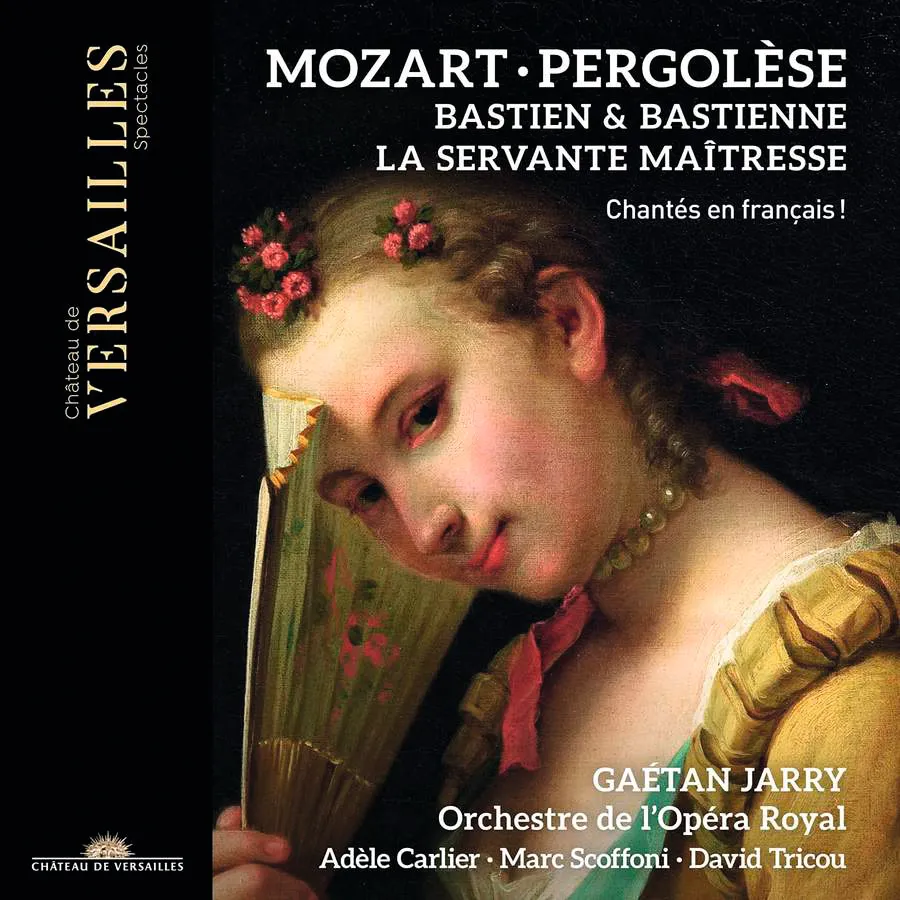
Mozart • Pergolesi Mozart: Bastien & Bastienne; Pergolesi: La servante maîtresse Adèle Carlier, Marc Scoffoni, David Tricou; Orchestre de l’Opéra Royal/Gaétan Jarry Château de Versailles CVS105 89:23 mins
Following the death of its composer in 1736 at the age of 26, Pergolesi’s small-scale comedy La serva padrona – its simple pre-Classical style in direct contrast to the contrapuntal complexities of the late-Baroque – was a European hit.
This tart little comedy (1733) about a maid who weds her own master appealed as much due to its social satire as well as its lightly entertaining score and tiny cast: just three characters, one of them silent.
Parisian productions in 1746, 1752 and 1754 were hugely successful, the third in particular generating a pamphlet war (the Querelle des Bouffons) between the supporters of the traditional tragédie lyrique and this novel, lightweight entertainment that would help launch opéra-comique.
It is the 1754 French adaptation of the piece – La servante maîtresse – that is recorded here, and although the characters take French names the plot remains the same.
Pergolesi’s comedy is paired with Mozart’s 1768 Bastien und Bastienne, written when he was 12 years old and setting a German libretto based on a French original. It is uncertain whether the piece was performed in Mozart’s lifetime, nor indeed until 1890: the text sung here is a French translation made by H. Gauthier-Villars and Georges Hartmann for the Opéra-Comique in Paris in 1900.
With the same three singers taking part in both operas, these performances are attractive, though the musical pace is a bit too deliberate under conductor Gaétan Jarry, while the spoken dialogue could be snappier.
George Hall